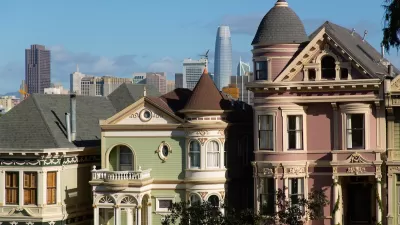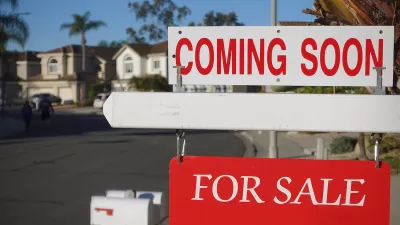For Howard Blackson, the latest trend in planning and design is redevelopment based on evolving, rather than phased, implementation. In this blog post he identifies the three typologies of this "slow urbanism."
The "new incrementalism" is Blackson's term for an emerging approach to development that allows for evolution in implementation as temporary uses seed the ground for more permanent investment. He observes: "[v]ery rarely now are we designing to build immediately for a project's absolute highest and best use or, as Nathan Norris calls it, its 'climax condition.' This new incrementalism focuses on how lots change - how they're built upon and reconfigured over time before, ahem, reaching their climax."
Following from this approach, he says, are three primary typologies that can play a role in this sequence of development: temporary architecture, pre-fab or modular construction, and so-called "Grow" or "Go" buildings that can be added to over time or demolished to make way for different ones.
FULL STORY: The new incrementalism

Planetizen Federal Action Tracker
A weekly monitor of how Trump’s orders and actions are impacting planners and planning in America.

Map: Where Senate Republicans Want to Sell Your Public Lands
For public land advocates, the Senate Republicans’ proposal to sell millions of acres of public land in the West is “the biggest fight of their careers.”

Restaurant Patios Were a Pandemic Win — Why Were They so Hard to Keep?
Social distancing requirements and changes in travel patterns prompted cities to pilot new uses for street and sidewalk space. Then it got complicated.

Platform Pilsner: Vancouver Transit Agency Releases... a Beer?
TransLink will receive a portion of every sale of the four-pack.

Toronto Weighs Cheaper Transit, Parking Hikes for Major Events
Special event rates would take effect during large festivals, sports games and concerts to ‘discourage driving, manage congestion and free up space for transit.”

Berlin to Consider Car-Free Zone Larger Than Manhattan
The area bound by the 22-mile Ringbahn would still allow 12 uses of a private automobile per year per person, and several other exemptions.
Urban Design for Planners 1: Software Tools
This six-course series explores essential urban design concepts using open source software and equips planners with the tools they need to participate fully in the urban design process.
Planning for Universal Design
Learn the tools for implementing Universal Design in planning regulations.
Heyer Gruel & Associates PA
JM Goldson LLC
Custer County Colorado
City of Camden Redevelopment Agency
City of Astoria
Transportation Research & Education Center (TREC) at Portland State University
Camden Redevelopment Agency
City of Claremont
Municipality of Princeton (NJ)




























